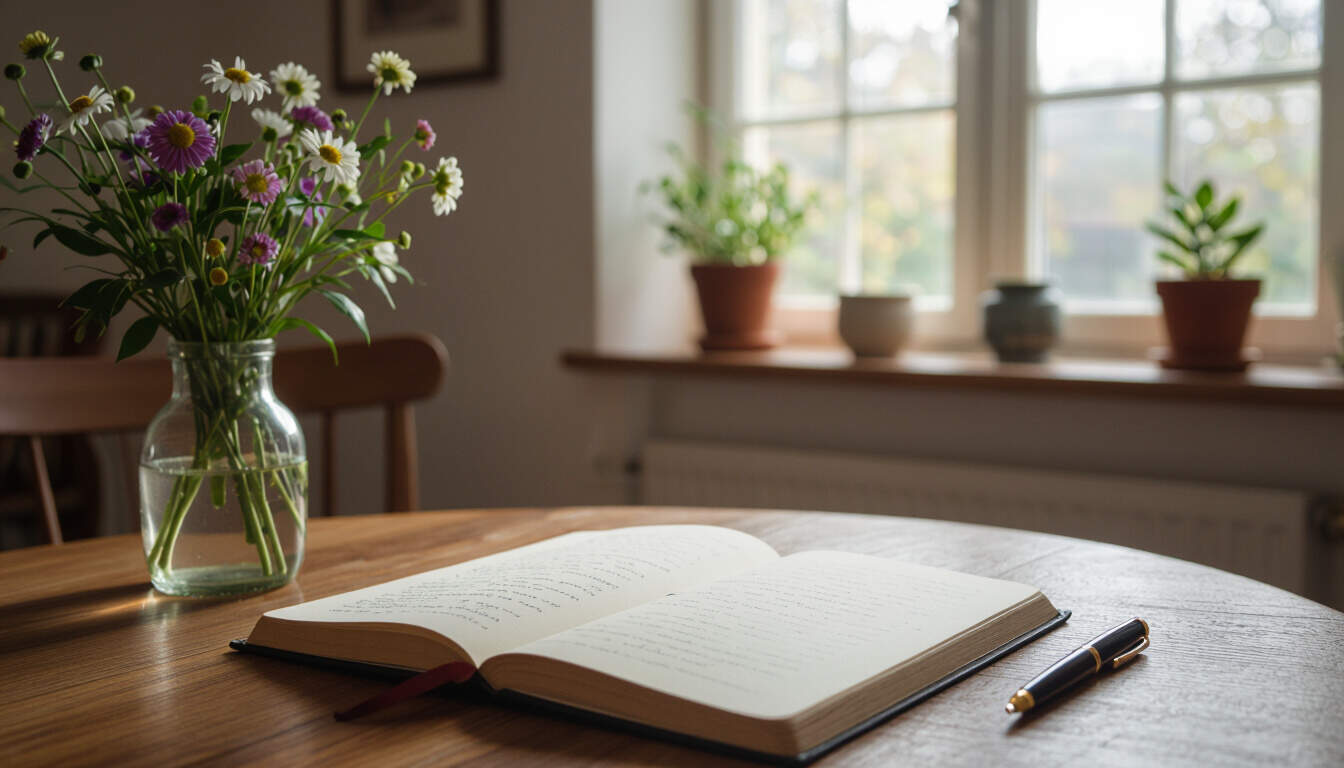Practical Journaling Techniques for Everyday Simplicity
 by Verner Mayer
by Verner Mayer
Discover simple journaling methods that help busy professionals and everyday people embrace minimalism. Learn how basic techniques can bring clarity and balance to daily life, fostering a sense of peace through regular practice.

Journaling offers a quiet way to simplify thoughts and routines, especially for those with demanding schedules. This approach focuses on essential practices that fit easily into daily life.
The Value of Journaling in a Simple Life
Many find that regular journaling helps clear the mind and prioritize what matters. For instance, spending just a few minutes each day can reduce stress and promote focus. Journaling serves as a tool for reflection, allowing individuals to track progress without overwhelming complexity.
In practice, this means choosing methods that align with personal needs. A basic notebook and pen suffice, emphasizing minimal tools to avoid distraction. The key lies in consistency, where even short entries build habits over time.
Basic Techniques to Start With
One effective method involves morning pages, where you write freely for a set period. This technique encourages honest expression and helps set intentions for the day. By keeping entries straightforward, it prevents overthinking and supports a balanced mindset.
Another simple approach is gratitude listing. Each evening, note a few things that brought joy or satisfaction. This practice fosters appreciation and counters the busyness of life. Gratitude in journaling shifts attention to positive aspects, making it easier to maintain equilibrium.
Bullet journaling combines organization with creativity in a minimal way. Use dots or symbols to outline tasks and reflections, keeping pages clean and functional. This method adapts to individual preferences, offering flexibility without excess.
For those new to this, start with one technique at a time. Begin with daily prompts like "What went well today?" to guide entries. Over time, these routines become second nature, enhancing overall well-being.
Making Journaling a Daily Habit
To integrate journaling smoothly, select a specific time and place. Early morning or before bed works well, creating a routine that feels natural. Keep materials accessible yet out of sight, maintaining a clutter-free environment.
Track your progress informally, perhaps by reviewing entries weekly. This allows adjustments based on what feels right, ensuring the process remains enjoyable. Habit formation through journaling reinforces simplicity, as it requires little effort once established.
Many professionals note improvements in productivity from this practice. By jotting down key thoughts, they manage workloads more effectively. Everyday individuals also benefit, using it to navigate personal challenges with greater ease.
Overcoming Common Challenges
At times, maintaining a journal might feel like an extra task. To address this, keep sessions brief, aiming for five to ten minutes. Focus on quality over quantity, selecting only the most relevant details.
If motivation wanes, revisit why you started. Connecting to personal goals can reignite interest and sustain the practice. Motivation often returns when journaling aligns with a desire for simplicity and calm.
Experiment with different formats, such as digital notes if preferred, but prioritize what minimizes distraction. The goal is to create space for reflection, not add layers of complication.
The Long-Term Benefits
Over time, these techniques contribute to a more centered life. Journaling helps identify patterns and areas for growth, leading to intentional decisions. This aligns with minimalism by encouraging the release of unnecessary elements.
For busy professionals, it provides a moment of pause amidst obligations. Everyday people find it aids in building resilience and contentment. By embracing these methods, one cultivates a lifestyle that values depth over abundance.
In essence, journaling stands as a gentle practice that supports ongoing simplicity. It reminds us that small, consistent actions lead to profound change, fostering a sense of harmony in everyday experiences.
